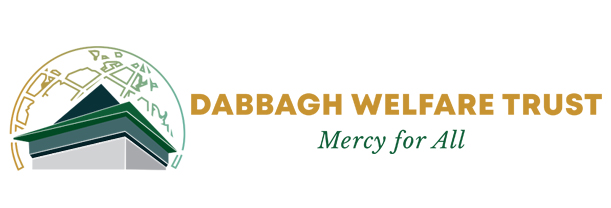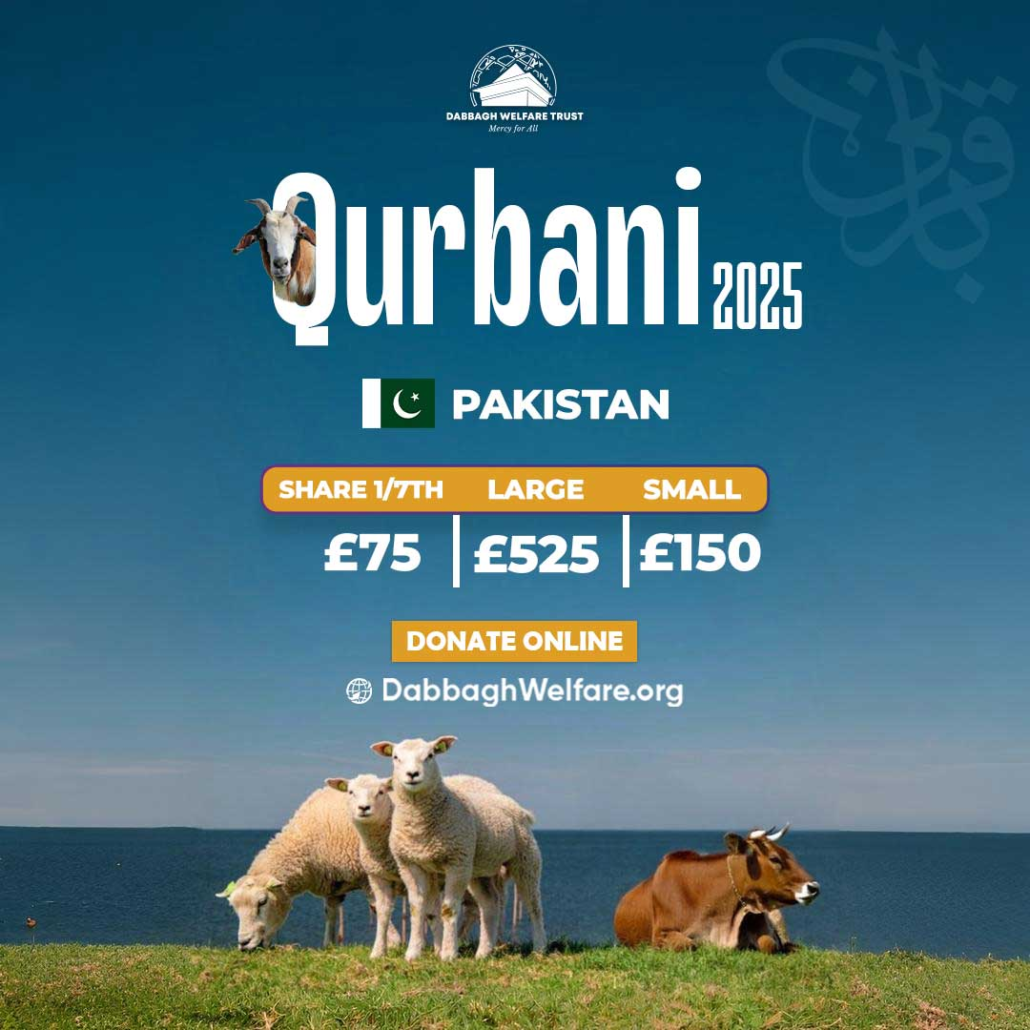Qurbani in Pakistan
Donate Your Qurbani in Pakistan | Fulfil a Sacred Sunnah & Feed the Poor
This Eid ul-Adha, follow the Sunnah of Prophet Ibrahim عليه السلام and make your Qurbani count by providing fresh, nourishing meat to the poorest families in Pakistan.
Millions of families in rural Pakistan live on less than £1 a day. For many, meat is a rare luxury – often eaten only once or twice a year. Your Qurbani could be their only chance to enjoy a proper meal this Eid.
What is Qurbani?
Qurbani (Udhiya) is the act of sacrificing an animal – goat, sheep, cow or camel – during the days of Eid al-Adha in obedience to Allah ﷻ. It honours the willingness of Prophet Ibrahim عليه السلام to sacrifice his son for the sake of Allah.
Allah says in the Qur’an:
“Their meat will not reach Allah, nor will their blood, but what reaches Him is piety from you.”
— Surah Al-Hajj (22:37)
The Prophet ﷺ said:
“There is nothing dearer to Allah during the days of sacrifice than the shedding of blood.”
— (Tirmidhi)
Why Give Qurbani in Pakistan?
-
🐄 Your Qurbani reaches widows, orphans and families in extreme poverty
-
📍 We work in remote, neglected villages where food insecurity is widespread
-
💯 100% Shar’i compliant – all sacrifices are carried out after Eid Salah, within the days of Eid, by qualified teams
-
🤝 Meat is distributed fresh, fairly, and in your name to the most deserving
Your Impact
-
1 Goat = Qurbani for 1 person
-
1/7th of a Cow = Qurbani share for 1 person
-
1 Cow = Qurbani for 7 people
By donating your Qurbani with Dabbagh Welfare Trust, you ensure your sacrifice benefits those who need it most, not just a ritual, but a means of relief.
Let Your Qurbani Reach Where It’s Most Needed
✅ 95% Donation Policy
✅ Shar’i Guidelines Followed
✅ Sadaqah and Zakat Options Available
Fulfil your duty. Share the joy of Eid. Give your Qurbani in Pakistan today.
🕋 “The person who performs Qurbani sincerely for Allah will be rewarded for every hair on the animal.” – (Ibn Majah)


